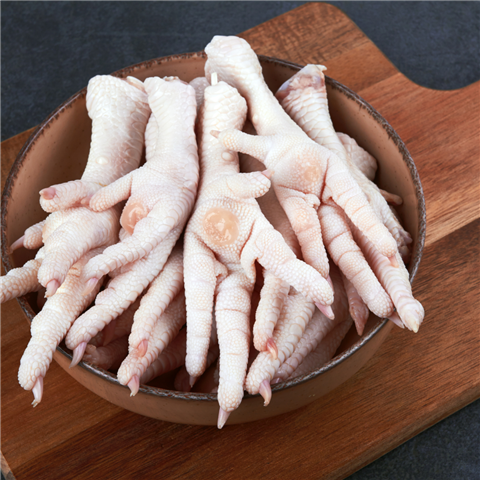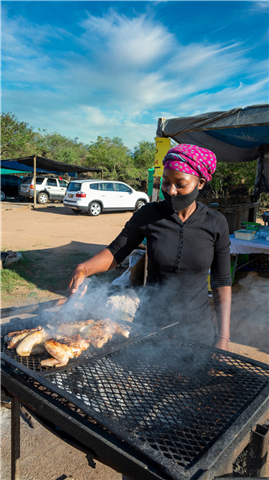NATIONAL NEWS - The price of low-cost chicken products in South Africa could be slashed in half through simple tax and import duty reforms, alleviating both food safety and security risks in vulnerable communities and townships, notes an industry expert.
This proposal comes as South Africa grapples with a recent spate of food poisoning incidents and deaths among children linked to pesticide-contaminated food from informal vendors and spaza shops.
But although government has announced a range of measures to curb the illicit use of pesticides and tighten controls in spaza shops, food safety issues are also being exacerbated by price sensitivity and food insecurity among low-income households.
This is according to Fred Hume, Managing Director of food import and export business Hume International, who argues that making food more affordable could help prevent desperate consumers from turning to risky, unregulated businesses and vendors.
“Food, and especially protein, has become too expensive for many consumers. The most vulnerable groups in our society, who also make up a substantial portion of the population, often cannot afford higher retail prices in formal stores. This drives them to support informal, unregistered traders who offer lower prices due to minimal overhead costs and, unfortunately, lack regulatory oversight.
“More formalised vendors typically follow the correct health and safety standards, and compliance will improve even further as government takes additional steps to regulate the market. However, the issue remains that a vendor with a temporary setup, and no refrigeration or means of keeping their workspaces clean, can set up anywhere at any time and undercut traditional stores, restaurants, or even spaza shops that have much higher operating costs.”
Alleviating the burden of taxes and tariffs on critical foods
In response, Hume International is lending its support to calls by the Association of Meat Importers and Exporters (AMIE), South African Poultry Association (SAPA), and Red Meat Producers Organisation (RMPO) to add low-cost chicken and beef products to the zero-rated VAT food basket.
These products could include poultry and beef offal, as well as chicken carcasses, which are particularly popular in low-income households, immediately reducing the price of these basic proteins by some 15% for consumers.
“By making essential food items such as offal more affordable in-stores, government can help attract people to safer, more reputable food suppliers. This will have the added benefit of giving government the time they need to formalise and better regulate the informal sector.”
In addition to VAT exemptions, by waiving import duties on chicken offal and carcasses, currently set at around 30%, government could cut prices by a total of 45% for consumers.
 Chicken feet
Chicken feet
Notably, domestic poultry producers do not produce enough of these products for local needs, and the domestic industry’s focus tends to be on more expensive cuts such as bone-in chicken which offer better profits, he adds.
“South Africans rely on imports to fill the supply gap for low-cost products, meaning that duties on these crucial sources of protein are nothing more than a hidden tax on vulnerable consumers. Doing away with ineffective import barriers will significantly ease the burden on low-income households and families, with no negative impact on local producers.
“But, to maintain protections for the local poultry industry, government can simultaneously keep VAT and import duties in place for more expensive chicken products.”
Additional regulatory measures to keep protein prices in check
On top of tax measures, Hume states that South Africa needs to address the systemic and policy inefficiencies adding further layers of costs to imported food products.
Positively, the Department of Agriculture, Land Reform, and Rural Development (DALRRD) is in the process of creating a subdivision to clear the backlog of new market applications, and expedite the process of re-opening markets that have been declared disease-free by the World Organisation of Animal Health.
Furthermore, this subdivision will undertake a comprehensive review of existing health certificates to ensure alignment with current international legislation, covering aspects such as heat treatment, regionalisation, and animal disease responses – all major steps in the right direction, says Hume.
He emphasises that heat treatment protocols for imported poultry could make a particularly significant difference in protecting the poultry supply chain. Already successfully used with imported pork products, these measures involve heating the meat to a specific temperature for a set period to ensure all pathogens are effectively eliminated.
Once implemented, these could help ensure more consistent, uninterrupted import supplies, while improving price stability in the local market to the benefit of consumers.
Likewise, regionalisation policies for imports could help ensure a consistent supply of offal and carcasses to the South African market, with additional cost benefits to local consumers. Currently, a disease outbreak in one part of a country results in blanket bans on imports from that entire country. In contrast, regionalisation allows businesses to continue importing from regions that have been cleared of disease, only temporarily banning specific affected areas.
“The combined result of these actions could be a reduction on offal and carcass prices upwards of 45%, effectively addressing issues around food prices and availability, which in turn will strengthen food safety.
“Ultimately, government needs to adopt a two-pronged approach that introduces better regulations and enforces existing ones to improve health safety standards in the informal sector, while also implementing tax measures to help those families suffering from high food costs,” concludes Hume.
 Chicken dust.
Chicken dust.
‘We bring you the latest Garden Route, Hessequa, Karoo news’
















